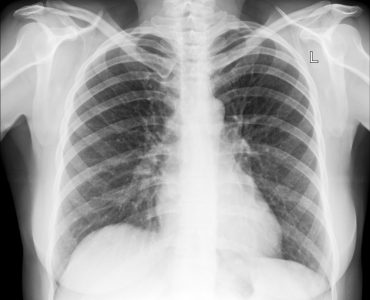Pyelonephritis can be defined as the ascending urinary tract infection which has affected the pelvis. The severe case of this infection is known as urosepsis.
One may be affected with this infection at any point in their life. Even though this is a rare condition, women are more subjected to this condition.
The urine which is produced in the kidneys is stored in the urinary bladder. It is eliminated from the body when we pass urine.
A person develops pyelonephritis if bacteria present in the urinary bladder moves to the kidneys. This happens mostly when a person develops cystitis.
Symptoms
The presence of pyelonephritis in a person is characterised by the following signs and symptoms:
- The person will experience pain either on one or both sides of the lower back.
- Fever
- Shivering
- A general feeling of being sick
- Diarrhoea
- Vomitting
- The urine will contain blood. This condition is known a haematuria.
- The urine will be of a cloudy nature.
- The urine will have an unusually bad smell.
- The person will experience pain while passing urine and
- The person will have a sense of frequent urination, than in normal cases. This is known as micturation.
A child who is suffering from pyelonephritis may develop fits.
A person who is suffering from repeated infections of the kidney can develop chronic pyelonephritis. The symptoms associated with the presence of chronic pyelonephritis will be the same as those which are mentioned above. But the severity of the symptoms will be very less. A person may experience fever which will of a come-go type.
Causes
The major trigger of any renal infection is the presence of bacteria in the kidneys, which reaches the kidney from the bladder when the bladder has some infection like cystitis.
But there are other triggers which can lead to the development of pyelonephritis. If a person has kidney or renal stones in his kidneys, then the free flow of urine is restricted. This can lead to the trapping of urine which provides the climate for the growth of bacteria.
The other trigger is similar to the renal stones. This occurs when one of the ureters develops a block. This also is a favourable condition for the growth of bacteria.
The kidney develops pyelonephritis in cases where the bacteria reach the kidney through the bloodstream.
Treatment
Antibiotics are administered to the person who is suffering from pyelonephritis. Antibiotics are drugs which will help in the clearing of the infection.
The pain which is associated with the presence of pyelonephritis can be soothed by the usage of analgesics or painkillers like ibuprofen or paracetamol. If a person has a fever, then these drugs will help to reduce the fever. But a person who is suffering from asthma, any other renal failures or hepatic conditions should not use ibuprofen.
The intake of water in plentiful quantities is advised.
But if the infection is very severe, then the person is admitted to the hospital and then antibiotics are administered intravenously. A person is also administered intravenous fluids to prevent dehydration which results from micturation.
If a person is identified with the presence of kidney stones or any blocks in the ureters, then he may have to undergo surgery for rectifying it.













